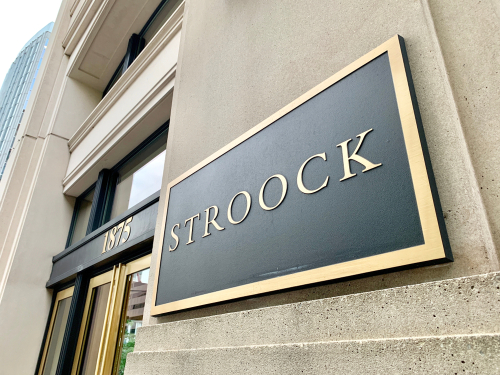Appeals court rules that a law firm can sue for alleged fake online reviews which have lowered its rating
First Amendment
Law firm can sue over alleged fake online reviews that toppled its top rating, appeals court says
September 19, 2024, 2:37 pm CDT
A Houston law firm alleging that it was defamed by 99 fake three-star reviews on its Google business page can sue for defamation for 62 of those reviews, an Ohio appeals court has ruled. (Image from Shutterstock)
A Houston law firm alleging that it was defamed by 99 fake three-star reviews on its Google business page can sue for defamation for 62 of those reviews, an Ohio appeals court has ruled.
Lawyer R. James Amaro and the Amaro Law Firm in Texas can’t sue for reviews that are mere opinions, according to the Aug. 28 decision by the Ohio Fifth District Court of Appeals. But it can sue for the 62 reviews describing fictitious interactions or experiences with the firm that can be proven true or false, the appeal court said.
Court News Ohio covered the decision in a recent story noted by the Legal Profession Blog.
The actionable reviews included language such as “no follow-up,” “never called me back,” “never updated me,” “never responded,” “no communication” and “did not answer call.” Other actionable reviews had language indicating that the writer was a client, such as “no idea what is going on with case.”
The appeals court described the actionable reviews as “no communication reviews” and “client language reviews.”
But the firm can’t sue over reviews that gave the firm three stars, with no text included or with positive evaluations, or that contained only a subjective evaluation, such as “poor communication” and “no timely response.”
The Amaro Law Firm had more than 1,500 positive reviews and a perfect five-star rating before the negative reviews appeared in 2022, the firm said in its lawsuit. The Amaro Law Firm was near the top of Google’s search results for personal injuries firms because of its high rating. In response to a subpoena, Google said all the negative reviews were from an IP address assigned to the Ohio residence of two people–who became the suit defendants.
The defendants had claimed that the reviews were constitutionally protected statements of opinion. They also sought dismissal of causes of action for invasions of privacy, trade-libel, and tortious interference with businesses relations on the grounds that they were derivative of defamation. A trial judge in Licking county, Ohio, agreed and dismissed the whole suit in December 2023. The appeals Court reversed the decision, allowing defamation claims to be brought against 62 reviews as well as other causes of action. The meaning of whether a law firm followed up or didn’t follow up with someone is well understood. The language in these reviews is not so hyperbolic so as to undermine the reader’s impression that the reviews allege appellant did not return calls, follow up or were a client of appellant.”
The case is Amaro v. DeMichael.






